Drew Linsalata This week on the anxious truth. We’re going to get a little geeky with it. We’re going to talk about how exposure works. Why sometimes? It only works part of the way and you wind up prone to setback or relapse. We’re going to talk about habituation versus inhibitory learning. I promise not to get too technical. We’re going to keep it friendly. Let’s go Hello. Everybody welcome back to the anxious truth. This is podcast episode number two to six recording in September of 2022. I am Drew Linsalata creator and host of the anxious truth. If you are new to the podcast or the YouTube channel and have just stumbled on the anxious truth is the podcast that covers all things: anxiety, anxiety disorders, and anxiety, recovery. Welcome. I’m happy you’re here, And I hope you find it helpful If you are a returning listener or YouTube viewer. Welcome back, Always happy that you’re here. Thank you for your continued support. Today we are going to talk about the mechanics of exposure, how exposure works sometimes and why sometimes it doesn’t work fully and why some people wind up in setbacks, and how we can maximize the value of our exposure. Essentially, this was requested by a lot of people when they asked about the difference between habituation and inhibitory learning, So it’s gon na get a little bit technical and a little bit geeky, but I’m such a nerd about this stuff. I dig this way back in school, at the masters level, to go through all of this stuff, But I promise I’m going to keep it a little bit friendly and that we’re not going to get too technical here. I’m going to keep it within the context of recovery, So before we get to the meat and potatoes of the episode, I just want to remind you that the anxious truth is more than just this. Podcast episode There are 200, something other free, podcast episodes. There’s a bunch of years worth of free social media content. There’s my free morning newsletter and podcast called The Anxious Morning. There are three books that I’ve written about anxiety and anxiety disorders and recovery. There is a free one-hour recovery, one on one seminar and there is a webinar that I do every month with my friend Joanna hardest. She’s an anxiety and OCD specialist from Cleveland. We do a webinar on the art of distress, and tolerance. All of those things are the anxious truth. Com Go check them all out. If you are already reading my books and you’re digging them maybe head on over to Amazon and review them for me, it helps me out And if you are enjoying my work, it is helping you and you would like to help to keep it Free of sponsors and advertisers All the ways that you can do that are at the anxious truth, com support. It is never required, but always appreciated, And thank you guys for all the different ways that you support my work. I appreciate every one of you So let’s get into this habituation versus inhibitory learning, So we know about exposure and we know about going toward the things we fear and not avoiding or trying to escape. We’re not trying to engineer our life so that we never get triggered. We know that exposure is an effective tool when it comes to anxiety disorders. We’re going to start from that premise because we know this to be true, But how does it work? I’m going to give you the TLDR. It the too long and didn’t read if you want to stop listening now ready Here. It is Old school exposure based on habituating to anxiety, which is all about learning that you’re, okay, as long as anxiety decreases or disappears Now that sort of works, But it leads to a fragile state of recovery and frequent relapses and setbacks. Current models of exposure are, in many cases a little bit harder. They’re a little harsher, but they’re based on learning that you are okay and can handle it even when or if you get anxious or panic. That leads to more durable and wider states of recovery, So habituation will get you to I’m okay. As long as I don’t get anxious, whereas inhibitory learning we’ll when we allow it to happen, we’ll get you to. I’m no longer worried about being anxious. It doesn’t matter Now, which do you think is better? I can tell you this when you encounter a fully recovered person that does not experience relapses or setbacks. You’re talking to somebody that wound up with the second result, not the first Alright, so that’s like the Reader’s Digest version of this episode. If you want to hit the eject button, go ahead and do that now, But we’re gon na get more detailed, So this can get super technical and geeky as I said, but I’m not going to get technical and geeky on you here. Now I could link a bunch of research papers in the show notes for this episode, which will be at the anxious truth com two to six, But that is probably a bad idea, And here’s, why. I know that many of you listening wind up almost obsessively researching recovery techniques and methods reading and reading and trying to make sure that either you have the best way to guarantee that you are doing it right because you need to do it right to Try to guarantee that you absolutely will recover or to get immediate relief. It can be way too easy to dig yourself into a ditch and a hole based on obsessively trying to research recovery and get it exactly right. So you can Google on your own. If you must, but I’m going to say if you are prone to that kind of habit, Please sort of think twice about doing that. Alright. So a few important points point that we want to get into here I’m working from notes today, which is a little bit unusual, but it is a little technical. So I want to make sure that I hit all the points So exposure. Let’s talk about exposure Exposure is not the thing that you are doing: right, driving, walking staying home alone, or holding a knife in your hand that’s not the exposure. The exposure is to the sensations, thoughts, and emotions that you will experience when you do those things right. So nobody listening to this podcast is using exposure to learn how to drive again or to walk to the park or nobody’s. Doing listening to the podcast to learn how to stay home alone or to hold a knife, We’re learning, and you’ve heard me say this so many times, probably sick of it. By now, we’re learning how to relate differently to the way we feel when we do those things. This is important, right? Keep this in mind as we go through this podcast episode. The exposure is the anxiety, the symptoms, the thoughts, the sensations all of those things, the emotions that are the exposure. We only use driving staying home alone, and holding a knife to trigger those things. So keep that in mind. Exposure is about coming into contact with good exposure right Where we’re going to try to leverage the mechanism mechanism of inhibitory learning. Good exposure is about coming into contact with those sensations. Those scary thoughts, then the emotions, the feelings, the symptoms, or trying to come into contact with those things, while also resisting the urge to perform safety rituals or compulsions that you are hopeful will take away the bad feelings And the fear that, because you hate that right, So what are some examples of that would be going home when you panic at work, if you’re out trying to practice driving turning the car around when you get anxious, while you’re driving and going home like exiting the exposure, only Doing certain things with a safe person Using safety devices like men,’s or snacks, or essential oils or ice packs, or always having had water with you in case you get anxious Another one would be automatically calling somebody a partner or a friend or somebody to Have them talk you through? If you get anxious And the last one is, I mean I’m involved in this one instantly. Turning on a podcast episode, when you get anxious, If you start to feel yourself panic, if you immediately run for your favorite episode of the anxious truth or your anxiety, toolkit or the panic, pod or all the hard things, whichever podcasts you like, if you immediately Run to a podcast episode that’s a safety and escape behavior right. Do you do any of those things? So let’s talk about those things that speak to the idea that when I do difficult things I’m trying to make my anxiety decrease. I need to make it a lesson that speaks to habituation Right? Habituation is a natural process, humans and animals habituate. So the idea of habituation is that you start to get used to it right When we looked at exposure based on habituation getting used to something so so that your reaction to it decreases. We kind of had that right, But we were missing some important parts of the puzzle And when we looked at some of that, when I say wave the royal way, everybody in the behavioral sciences and clinical circles, not me and you. But when we looked at this stuff over time, we started to see that hey CBT is super effective, like old-school CBT. That was just you know, exposure get used to it, get used to it, and then it goes away. When we looked at the success rates there, they were way better than other forms of therapy. True but then the relapse rate was pretty high Right, So the relapsing setback rate was pretty high with that And what is the situation we find ourselves in now? Is that a lot of people, because they tried to get a basic understanding of exposure like okay? I get it, I just have to do the things. So if you think that exposure is just doing things, then you are kind of accidentally relying on habituation. You expect that, if I do it, then anxiety will lessen over time because I’ll get used to it And yes again, that happens. Habituation is part of this for sure all the time, But that’s kind of an old-school way where exposure was done incrementally Sounds familiar right? Lots of repetition Sounds familiar, but more simplistically, simply trying to get someone acclimated or habituated to anxiety. So if you are hoping that you can just keep pushing through your exposures and engineering them so that they are as easy as you can make them and remember our list of safety behaviors, then you are purely banking on habituation to get you to a recovered state. What’s the problem with that? This often leads to partial recovery or good enough recovery. The acceptable bubble you hear me talk about this is where you can do most of what you need to do and manage life daily. You’re not completely restricted anymore, but you’re usually doing that with a big set of conditions and restrictions. So I’ll get I’ll. Give you a couple of examples. I can do the school pickup now, But if I’m having a really bad day, my partner does it. I bet this one. I can stay home alone now As long as they know that they’re or someone around that. I can call in case. I get anxious or have at this one I’m pretty good at handling my intrusive thoughts now, But I still can’t watch any movies that have babies in them or I spiral Right So that’s sort of good enough recovery. Partial recovery is acceptable, but a bubble recovery that kind of recovery has a limit. And when you cross that limit, you often experience anxiety and fear again, which you then think you can’t handle, because you’re not used to it in those contexts across your limit lines right? So a partially recovered person does some things with conditions but refuses to do other things because of how they might feel if they do them A partially recovered person just got used to it by powering through over and over and over or learned how to make It stop or lesson will tell you that they are okay in the supermarket, but still can’t go to the movies and are afraid to try So fear extinction, which is like an old term that we used to use you’re trying to make Your fear go extinct Based on habituation, tends to be very specific like habituation is okay, But it essentially teaches us that we are okay as long as we can be sure that anxiety won’t be there or it won’t last very long, And we see this when a partially recovered person may experience one or two episodes of intense anxiety and then winds up in a setback or relapse. Now, as a side note a little bit of geekiness that I’ll throw in here, we kind of know that we never actually unlearn our fear right? That’s, not a thing. I know we talked about that And I mean other literal people who are sort of building a brand on unlearning anxiety, but you don’t unlearn that fear response, So that response is kind of coded permanently in your brain once we learn it and we Have experiences that are associated with that response And this kind of helps to explain how sometimes setback and relapse are so easy for people to fall into to some extent right. We’re, not unlearning our fear. What we are doing when we recover is that we are learning new ways to relate to it and new ways to handle it and new ways to get through it And those new pathways get encoded into your brain alongside the old pathways. So you will still kind of have that fear for the rest of your life, But that’s, okay, Because now you have stronger pathways that you can travel down in your brain is a gross oversimplification just for visualization purposes. When, when it comes up, I can pick that pathway as opposed to the old one, but the old one is still there. We never actually unlearn it if you will erase it. So if we’re aiming at fear, extinction, or making your anxiety go away, relying solely on habituation, getting used to it, just repeating it enough, so that you get used to it, makes for a bit of a fragile state, full of conditions and prerequisites for being. Okay See the problem there So now let’s go into inhibitory, learning, enter inhibitory, learning, So inhibitory, learning, isn, ‘t so much concerned with making anxiety go away as it is concerned with teaching us that we can tolerate and navigate through anxiety when it happens And at this point, you’ve got to be sick of hearing me say words like tolerating and navigate You’ve heard me say them 1000s of times, but now you’re starting to understand the reason. So let’s bring it back to some of the things you hear me talk about on this podcast And you see me write about all the time when you hear me talk about changing your reaction to anxiety and fear or giving up the fight or surrendering All those words that I use all the time, Where are we are in inhibitory learning territory there. When you hear me tell somebody to mix up their exposures and have varied experiences, because that’s most effective, We’re banking on the mechanism of inhibitory, learning right, it works better And again. This is a lot of research on this. It works better when we have a varied range of experiences to work from When I tell you to be incremental and keep adding difficulty to your exposures over time. We need them to be difficult. We’re leveraging the power of how inhibitory learning works in your brain And when this is a big one when and it’s a big one. To me, to be honest with you, When I plead with you when I’m practically begging you to take the lessons that reality hands you, and I did an entire podcast episode on this one. I’ll link it in the show notes because I don’t remember which one it is When I beg you to. Please take the lessons that the universe hands you after an exposure that nothing happened, except that you were afraid and had thoughts and sensations. I am pointing you in the direction of inhibitory learning when you refuse to take that lesson Yeah, but I had I was anxious I was afraid, but I panicked You’re, you’re saying I can only be okay. If I don’t panic – or you can only be okay if it decreases, You’re, relying on the fact that you might get used to it That’s the habituation model, I’m simplifying. But when I tell you, no, you it doesn’t matter. You just have to take the lesson that said you’re afraid, but nothing bad happened. I’m trying to get you to move closer to the way your brain works in terms of inhibitory learning, So it’s important for me. I think to say that inhibitory learning it’s not so much a technique like this isn’t a technique. It’s, not a method. Inhibitory learning is not a method. It’s more of a model that we came up with to describe how brains achieve a wider and more durable state of recovery. I’m relating it to recovering from an anxiety disorder, so be careful. Like don’t go to a therapist and say: do you do inhibitory learning here I mean a good therapist who specializes in anxiety sort of should understand what you’re saying, But they would correct you like inhibitory learning is not a therapy. It’s. This is not a therapy type, It’s, not a method. It’s not a technique. It’s a model that we use to describe what’s going on in our brains. When we learn more deeply and effectively that we’re okay – And we can get better that way, Alright, it’s a different way to get better And our brains are. We can do it. We just have to make sure that we do things that use the power of our brains to be able to do those things. So this is not so much about guaranteeing that your fear goes extinct, which would be the old way, But rather it’s about knowing that. Even if you do wind up afraid, you’re still, okay And you can move through and past that. This is why, if I have a rare panic, sell panic attacks now, but they’re very rare for me. If I have one a comes, it goes. It’s over. I’m, literally not thinking about that panic attack an hour later. I just don’t care, So you know this ties into some of the other things that we’ve talked about, And I just wrote about this in the anxious more newsletter last week. How can I not care? Well, the mechanism of inhibitory learning, if you gear your exposure to take advantage of the fact that your brain can do it, that way, will teach you that you, don’t have to care. So it’s not like you, can just snap your fingers and decide to not care about your anxiety. You can stop trying to do that because it’s not going to work, But when we leveraged the inhibitory learning model and our exposure work and our recovery work, we learned that it’s, okay, to not care anymore right? So it’s really important. That’s, why I say we’re learning this way, newer ways that, even if we do end up anxious and afraid we’re okay can move through it at that moment and then past it going forward in the long term. So then, let’s bring it back to sort of recovery And what that means, Because if we don’t have, we have no way to apply this in what we do, the things we do to try and get better then we’re good at it, So I can give you some hints here and I’m – going to wrap it up in a couple of minutes here. I don’t want to get too long on this one. I literally could go for hours on this stuff. It’s, goofy, I don’t know why I’m so into this, but I always have been So. That explains, I guess why I’m behind this microphone Anyway. What are the hallmarks of exposure and recovery work? That kind of taps into the power of that inhibitory learning process right, So your exposures should be focused on tolerating and navigating through anxiety, not making a decrease. That is huge Because if you’re approaching your recovery, so that’s okay Drew says, I have to do scary things. I’m going to do scary things, But I’m going to try to make them as less scary as possible Because I don’t I’m trying to make the anxiety not happen or happen at a low level. You’re missing the point. You want the exposure to teach you how to tolerate that anxiety and move through it. Yes, even full-blown panic. So some of this, if you’re going to try to gear your recovery work toward this model. Some of that involves an openness to say: if you insist that panic is too much and you can’t do it that way, then that’s – okay, I’m not going to try to convince you otherwise, But you can’t. Have it both ways? You can’t draw a line in the sand and say I cannot tolerate certain levels of anxiety and also want to do this. You can’t have both, So you got to have that openness to accept that this might be true and that what I’m saying might actually work for you And that you actually can do things. You think you can, And you have to focus your exposures on the act of tolerating and moving through anxiety, not trying to make it not happen. So if you’re gon na go drive on the highway today and you’re going to try and find ways to do that without being anxious, you’re missing the point. You want the anxiety you want that to happen, and you want to practice moving through it that’s important. The other thing that you need in your exposure and recovery work is an openness to experience all anxiety during exposures, rather than trying to minimize it, which is what I was just talking about. So we’re looking for exposures that have varied experiences. Now the cool thing is like you can’t just recover, you’re also living your life. So often life will hand us a lot of varied experiences. You can’t very few. People have the luxury of just sitting on the sofa and just doing exposure for a day and then going back and sitting on the sofa until it’s time to do more exposure. You’re gon na be challenged all the time except the challenges that life hands you, even if they are small, take even the small ones that’s fine, and use them to have varied experiences. I don’t care. If you drive every day Now, I did it by driving every day, but I also started doing other Things like what I did Mike And it’s funny cuz. When I wrote the anxious truth, I talked about how recovery will accelerate, But recovery accelerates. When you can take the lessons from one exposure and bring them to the other, that’s when you need those varied experiences, So mix up your exposures, Remember what I said at the beginning of this episode. The exposure is the anxiety and the panic, not the task, So drive walk, stay home alone. Go shopping, go to a pizza place and sit down, have a slice of pizza, whatever it takes, mix them up as best you can Right? So we’re still talking about using, like fear ladder and moving up you don’t go from housebound to a world cruise in two days, But within that fear ladder just mix things up that are in sort of that same difficulty level. It helps Important is super important. We’ve talked about this, the RP part of ERP exposure and response prevention, which all exposure ultimately is ERP, whether you’re dealing with OCD or not resisting the escape avoidance and safety rituals is very important. You can’t, you can’t try to hang on to your meds, your water, your phone, your partner, your safe person, your oils, your ice pack, and also do this. Now, if you are going to hang on to those things to get started, I’ve said this before go for it. I would rather, you see get started and then start to leave those things behind than never. Stop Just know that at some point you’re going to have to leave the safety, the escape rituals, the safety rituals, and those safety devices you’re gon na have to leave the crutches you’re gon na leave him behind. Keep that in mind you’re gon na, have to at some point next thing. The difficulty we need exposure to be difficult. They are supposed to be difficult. That’s the whole point of the exposure, Like one of the things that we know from the research and a lot of the stuff around the inhibitory learning model is difficulty is important, And in fact, a lot of the. If you look at some of the literature in the OCD community, they’ll, they’ll acknowledge that like yeah, we need it to be harder now, So that your life can be easier later. Keep that in mind, But we need your exposures to be challenging If they’re not challenging, then they’re, not exposures Right? So I say this all the time. If you are bored now taking a walk to the park with your kids that’s not an exposure anymore, So it’s good, to go ahead and take the walk. The park, the kids, that’s life. I hope it’s good and you’re enjoying it. It’s a good thing for you guys, But you can’t keep calling it an exposure. So exposures are a difficult thing. We need them to be challenging tiptoeing through life, trying to not be anxious and doing things here and there When you feel good That’s not exposure, So that’s just tiptoeing through life And then the last thing that I’m gon na throw In here is when I wrote the anxious truth, I talked about changing your reactions And the third reaction is the reaction.

http://adgenie.gotop100.com/
http://topdogsrotator.com/r/leroymoco

https://flyby–buffy.blogspot.com/
After and in that book, I wrote about the story that you tell yourself and everybody else after the challenge is over. The last thing I’m going to talk about is that it’s an openness to accept the outcome of the exposure based on the fear of disaster not happening rather than how you felt like this is where you hear me say again and again, and it Sounds cruel and it sounds cold and it sounds all of those things. But when I tell you that I don’t care how it felt, I only care what happened That’s, where I am like begging you to see that. I know that it was hard And I know that you were terrified. I know that you thought you were going to die And I know that it felt like you were going to go insane, But you are now here an hour or a day, or a week later telling me that story Because none of those things happened So it’s so important to be open to the lesson that the exposure teaches us, which is that surprise. The thing that you are terrified of will happen. Doesn’t happen That’s so important. Now, if you’re listening to me, you may say, but the bad thing is the anxiety I get And for some people, it’s, not that the anxiety signals a danger because, for most of the community, it’s. Well, I’m terrified to panic, because when I panic, I think I’m going to die or think I’m gon na go insane Or I’m going to pass out or I’m going to have a psychotic break For other people. It’s just No. I don’t think that I’m just afraid of the panic itself, Because the panic itself tells me that I’m failing, I’m weak. I’m broken. I’m less than I can’t. Do this, this shouldn’t be happening, But even if that’s the way, you fear it and you don’t fear, death or passing out or a heart attack. In the end, the panic came and left, And again nothing bad happened. That does not show that you are broken or weak or less than at all. So you’re going to have to begin to accept that lesson that, like oh look, I did that again. I tolerated it again Instead of saying it was wrong for happening knowing I did a great job getting through it, So it’s so important to be open to the lesson that the experience teaches you other than just recounting the experience as a nightmare and something That you never want to happen again. That is so important And it’s why we say all the time we do. Don’t care how it felt we only care about what happened. We only care what happened So that kind of gives you. You know. 25 minutes on the difference between habituation and inhibitory learning and a rough idea of how that fits into exposure work, And I hope near the end here is how you can start to gear. Your exposure and recovery work to take advantage of the inhibitory learning model and not just try to get used to anxiety or make it go away. The key takeaway here is: am I doing these hard things to try to make it go away, Or am I doing these hard things to learn that I can do hard things and it doesn’t matter? If I get anxious that’s, really where you want to be That’s, where I want you to be, I want you there. I know that you’re trying to make it go away. We all want it to go away, But I say all the time go away is a happy secondary effect. It’s a secondary outcome. It’s a happy secondary outcome of learning that you’re. Okay, even if you do panic So please, if you take anything out of this episode, take that you should not be approaching recovery as a way to feel better and make it stop. You should be approaching recovery as a way to learn that it’s. Okay, even if you do get anxious and panic because when you get there and know that you can handle it, no matter where you are or what the situation is, then it starts to go away And it goes away more durably. It goes away across context. You don’t have to worry about like well. I can go to restaurants, but I haven’t gone to the movies yet So I got to do six months where the movie exposure to be able to go. No, you know that I’m okay if I panic in a restaurant, so I’m okay if I panic in the movies It’s, there’s magic in there. There is So that is my 2627 minutes on habituation and inhibitory learning and the mechanics of exposure. Hopefully, it has been helpful. I’ve been looking forward to doing this episode to be completely honest with you, And it was going to be super geeky at first. But I’m pretty proud of the fact that I didn’t get too deep into the technical woods here And I hope that I’ve been able to present it in a way that’s understandable and relatable. More than anything else. More than anything else, So that’s it We are done. This is episode 226 In the book. You know it’s over because of the music, that is Afterglow by Ben Drake. That is a song you hear at the beginning and end of every one of these podcast episodes. If you’d like to hear the whole song or know more about Ben and his music, you can visit his website at Ben Drake, music com. If you’re listening to this podcast on Spotify or iTunes, or some platform that lets you rate and review, the podcast leaves a five-star rating and maybe writes a quick review. If you dig it because it helps other people find the podcast. If you’re watching on YouTube subscribe to my channel, like the video leave a comment, I circle back every few days to interact on YouTube. So if you want to ask the question, I promise I’m gon na see it And I think that’s it Thanks for coming by. I appreciate your support. To find all of my other resources and goodies at the anxious truth com. I will be back again next week with another podcast episode. I don’t know what I’m going to talk about, but I will be here and remember until then. This is the way Unknown. Yeah, you’re doing fine story begins. You got a feeling that you go
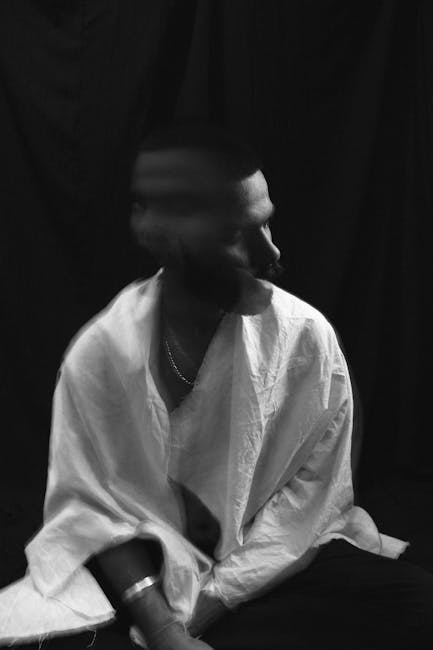 As found on YouTubeHUMAN SYNTHESYS STUDIO 👀🗯 Attention:
As found on YouTubeHUMAN SYNTHESYS STUDIO 👀🗯 Attention: Have Real Human Spokespeople In Your Videos Saying Exactly What You Want In MINUTES! REAL Humans, REAL Voices, With A NEW Technology That Gives STUNNING Results Choose Your
Human + Voice Type What You Want Them To Say Render your “Humatar” What You Are About To See Is Unbelievable…


 As found on YouTubeHUMAN SYNTHESYS STUDIO 👀🗯 Attention: Have Real Human Spokespeople In Your Videos Saying Exactly What You Want In MINUTES! REAL Humans, REAL Voices, With A NEW Technology That Gives STUNNING Results Choose Your Human + Voice Type What You Want Them To Say Render your “Humatar” What You Are About To See Is Unbelievable…
As found on YouTubeHUMAN SYNTHESYS STUDIO 👀🗯 Attention: Have Real Human Spokespeople In Your Videos Saying Exactly What You Want In MINUTES! REAL Humans, REAL Voices, With A NEW Technology That Gives STUNNING Results Choose Your Human + Voice Type What You Want Them To Say Render your “Humatar” What You Are About To See Is Unbelievable…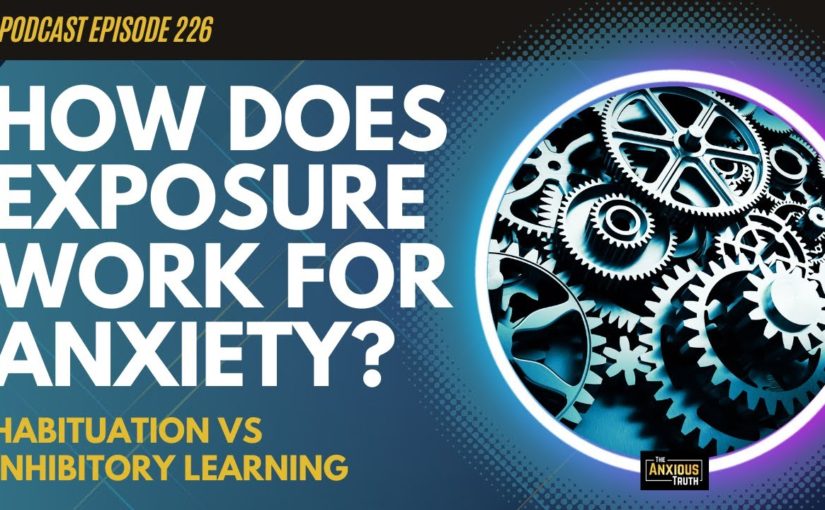
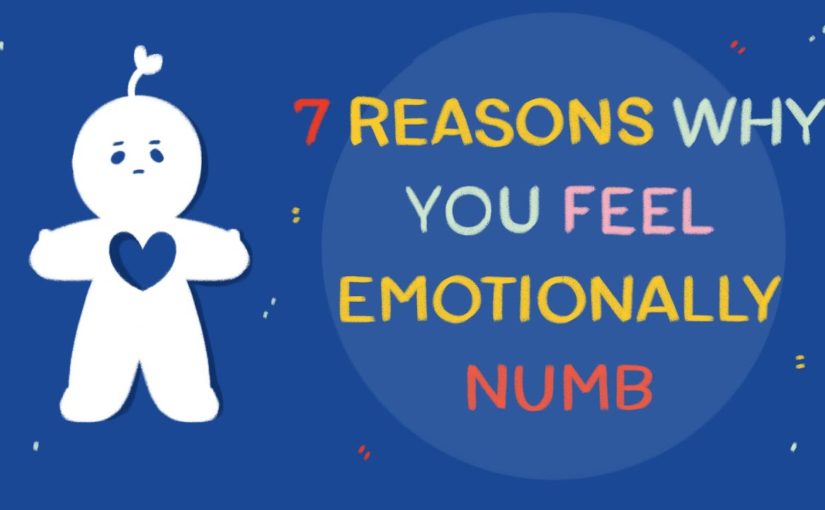
 An emotional void 7. you take too many medications Another reason for emotional void is the use of antidepressants, mood stabilizers and other sedatives which are drugs that disorient your central nervous system Emotional blockage and feelings of apathy are common side effects Some people say no if they feel like themselves when they use medication, then they stop using But it is important to talk to your doctor first so he can change your dose or the medication that best fits your needs Do you identify with any of these signs? If you know someone who needs online guidance, we’ve teamed up with Better Help, an online advice platform you can use. They’re constantly trying to improve their service and terms and conditions. The link is in the description. Thanks for watching.
An emotional void 7. you take too many medications Another reason for emotional void is the use of antidepressants, mood stabilizers and other sedatives which are drugs that disorient your central nervous system Emotional blockage and feelings of apathy are common side effects Some people say no if they feel like themselves when they use medication, then they stop using But it is important to talk to your doctor first so he can change your dose or the medication that best fits your needs Do you identify with any of these signs? If you know someone who needs online guidance, we’ve teamed up with Better Help, an online advice platform you can use. They’re constantly trying to improve their service and terms and conditions. The link is in the description. Thanks for watching.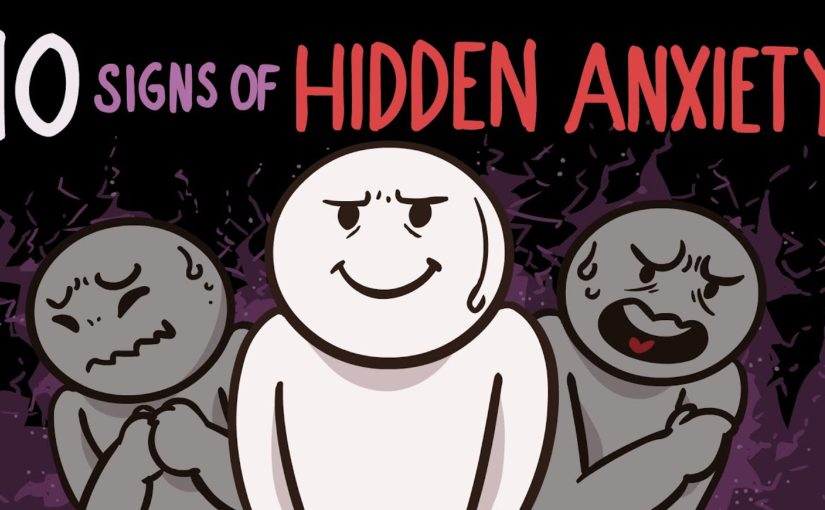
 6. You overthink past conversations. You tend to get hung up on past conversations. No matter how much time has passed since then You analyze the other person,’s, body, language, facial expressions, choices of words, and even the tone of their voice. You can’t help but think about what you should have done or said instead and it drives you. You are crazy and keeps you on edge every time you remember it. 7, You’re, always making yourself busy It’s common for people with anxiety to have a strong need to keep themselves busy. They’d like to occupy themselves with simple tasks and do as many things as possible in a day because sitting still and doing nothing for a long time can make them feel restless and on edge 8. You talk yourself down all the time. Life is 39. T is always kind to us and has self-love and a balanced lifestyle. Doesn’t come easily Living with anxiety, especially if it’s hidden or suppressed, can make it hard for us to feel good about ourselves and let ourselves feel happy. It makes us believe that we don’t deserve it and traps us in a vicious cycle of negative self-talk and constant pressure to be perfect. 9. You have a lot of negative thoughts. Are you a pessimist whose quick to find the downsides in every situation? You find yourself getting upset or stressing out over it. Even the most minor inconveniences Are every day, a constant battle with yourself against the spiral of panicked and rational thoughts. You have In 1997, famed psychologist and cognitive therapist Aaron Beck termed this kind of thought pattern as catastrophic thinking Which he often observed in his patients, who suffered from anxiety And 10. You experience physical symptoms. Sometimes anxiety can be entirely physical, because, while your conscious mind may not always be aware of your anxiety, it will make itself known to your body Things like erratic heartbeats chest, palpitations muscle tension, a clenched jaw shaky hands up a few sweating are all indicative of Anxiety, Your body may be trying to let your mind know that you’re feeling anxious and stop it before it gets any worse. Do you relate to any of the problems listed here Or do you do your best to seem ok And hide your symptoms, because you feel embarrassed about your anxiety? The truth is you’re not alone, and having mental health issues is nothing to be ashamed of. What do you plan to do next? Let us know, in the comments below Don’t forget to like this video and subscribe to Psych2Go for more psychology content Thanks for watching and we’ll see you soon. .
6. You overthink past conversations. You tend to get hung up on past conversations. No matter how much time has passed since then You analyze the other person,’s, body, language, facial expressions, choices of words, and even the tone of their voice. You can’t help but think about what you should have done or said instead and it drives you. You are crazy and keeps you on edge every time you remember it. 7, You’re, always making yourself busy It’s common for people with anxiety to have a strong need to keep themselves busy. They’d like to occupy themselves with simple tasks and do as many things as possible in a day because sitting still and doing nothing for a long time can make them feel restless and on edge 8. You talk yourself down all the time. Life is 39. T is always kind to us and has self-love and a balanced lifestyle. Doesn’t come easily Living with anxiety, especially if it’s hidden or suppressed, can make it hard for us to feel good about ourselves and let ourselves feel happy. It makes us believe that we don’t deserve it and traps us in a vicious cycle of negative self-talk and constant pressure to be perfect. 9. You have a lot of negative thoughts. Are you a pessimist whose quick to find the downsides in every situation? You find yourself getting upset or stressing out over it. Even the most minor inconveniences Are every day, a constant battle with yourself against the spiral of panicked and rational thoughts. You have In 1997, famed psychologist and cognitive therapist Aaron Beck termed this kind of thought pattern as catastrophic thinking Which he often observed in his patients, who suffered from anxiety And 10. You experience physical symptoms. Sometimes anxiety can be entirely physical, because, while your conscious mind may not always be aware of your anxiety, it will make itself known to your body Things like erratic heartbeats chest, palpitations muscle tension, a clenched jaw shaky hands up a few sweating are all indicative of Anxiety, Your body may be trying to let your mind know that you’re feeling anxious and stop it before it gets any worse. Do you relate to any of the problems listed here Or do you do your best to seem ok And hide your symptoms, because you feel embarrassed about your anxiety? The truth is you’re not alone, and having mental health issues is nothing to be ashamed of. What do you plan to do next? Let us know, in the comments below Don’t forget to like this video and subscribe to Psych2Go for more psychology content Thanks for watching and we’ll see you soon. .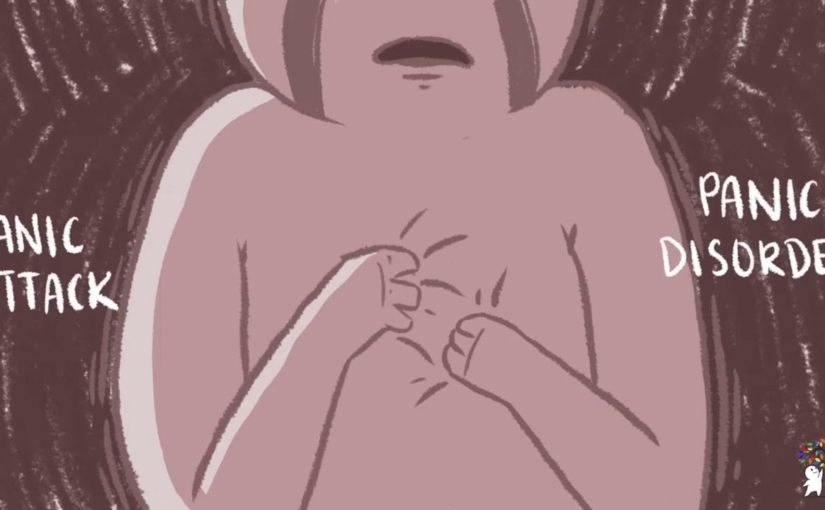
 According to dr Ted Wander, inpatient psychiatry, and medical director at Intermountain, LDS Hospital, the symptoms of a generalized anxiety disorder include more generalized emotional symptoms such as irritability, Feelings of worry or dread, trouble, concentrating, and feeling tense or jumpy. The symptoms of panic attacks, on the other hand, are more severe and come on more abruptly than symptoms of GAD. They can include sweating shaking chest pain, a rapid heart rate, and even numbness or sensations of choking For a more thorough list of symptoms and information. About panic and anxiety check out dr Wander’s, article 4 panic attacks are more sudden. Symptoms of anxiety attacks tend to show themselves gradually when exposed to a trigger When anxiety disorder becomes long-term, though, symptoms can become so constant that it can be hard to tell when they begin and end. Anxiety may also begin to cause more intrusive symptoms that occur more frequently when stressors are not present. A psychologist would likely consider this to be a symptom of anxiety disorder. According to the anxiety and depression Association of America, panic attacks are much more distinct. Symptoms come on suddenly and noticeably rather than building up gradually over time. The acute nature of panic symptoms, such as chest, pain, and shortness of breath have led many to mistake their symptoms for a heart attack. Luckily, panic attacks are not life-threatening and will often resolve on their own in a fairly short amount of time. 5 panic attacks can leave you feeling unreal and out of control For many the scariest symptoms of a panic attack, aren’t the physical sensations, but the mental unrest In an article for the National Alliance on Mental Illness. Writer, Jenny, Mary recounts her own experiences with these symptoms. She describes the realization as feeling withdrawn from one surrounding as if the world isn’t real Depersonalization, on the other hand, is closer to an out-of-body experience In which a person feels separated from his own self Jenny. Didn’t learn that this disorientation was also part of the panic disorder until she had worked through her symptoms, But once she learned that her experiences were not as unusual as they felt she began to have the peace of mind that allowed her to share her experiences. In this article and throughout her life, To summarize, the main difference between anxiety and panic disorder is Anxiety. Last longer, Panic is specific, while anxiety is more general. Panic and anxiety have different symptoms with anxiety involving symptoms like irritability, while panic attacks can include a shaking chest, pain and increased heart rate, and even numbness, And lastly, panic attacks are more sudden. Hopefully, you found this video helpful, Be sure to subscribe and comment below to suggest topics You would like to see us cover. Panic attacks are terrifying. The best way I can describe My panic attacks is one of those heart attack scenes from every single medical drama. There is It’s much worse than sweaty palms. Your entire body starts sweating. Sometimes things become cold. Whenever I’m at my worst, my breathing becomes so rapid that my throat hurts Noises come out of your throat without your permission and you don’t. Even recognize them.
According to dr Ted Wander, inpatient psychiatry, and medical director at Intermountain, LDS Hospital, the symptoms of a generalized anxiety disorder include more generalized emotional symptoms such as irritability, Feelings of worry or dread, trouble, concentrating, and feeling tense or jumpy. The symptoms of panic attacks, on the other hand, are more severe and come on more abruptly than symptoms of GAD. They can include sweating shaking chest pain, a rapid heart rate, and even numbness or sensations of choking For a more thorough list of symptoms and information. About panic and anxiety check out dr Wander’s, article 4 panic attacks are more sudden. Symptoms of anxiety attacks tend to show themselves gradually when exposed to a trigger When anxiety disorder becomes long-term, though, symptoms can become so constant that it can be hard to tell when they begin and end. Anxiety may also begin to cause more intrusive symptoms that occur more frequently when stressors are not present. A psychologist would likely consider this to be a symptom of anxiety disorder. According to the anxiety and depression Association of America, panic attacks are much more distinct. Symptoms come on suddenly and noticeably rather than building up gradually over time. The acute nature of panic symptoms, such as chest, pain, and shortness of breath have led many to mistake their symptoms for a heart attack. Luckily, panic attacks are not life-threatening and will often resolve on their own in a fairly short amount of time. 5 panic attacks can leave you feeling unreal and out of control For many the scariest symptoms of a panic attack, aren’t the physical sensations, but the mental unrest In an article for the National Alliance on Mental Illness. Writer, Jenny, Mary recounts her own experiences with these symptoms. She describes the realization as feeling withdrawn from one surrounding as if the world isn’t real Depersonalization, on the other hand, is closer to an out-of-body experience In which a person feels separated from his own self Jenny. Didn’t learn that this disorientation was also part of the panic disorder until she had worked through her symptoms, But once she learned that her experiences were not as unusual as they felt she began to have the peace of mind that allowed her to share her experiences. In this article and throughout her life, To summarize, the main difference between anxiety and panic disorder is Anxiety. Last longer, Panic is specific, while anxiety is more general. Panic and anxiety have different symptoms with anxiety involving symptoms like irritability, while panic attacks can include a shaking chest, pain and increased heart rate, and even numbness, And lastly, panic attacks are more sudden. Hopefully, you found this video helpful, Be sure to subscribe and comment below to suggest topics You would like to see us cover. Panic attacks are terrifying. The best way I can describe My panic attacks is one of those heart attack scenes from every single medical drama. There is It’s much worse than sweaty palms. Your entire body starts sweating. Sometimes things become cold. Whenever I’m at my worst, my breathing becomes so rapid that my throat hurts Noises come out of your throat without your permission and you don’t. Even recognize them.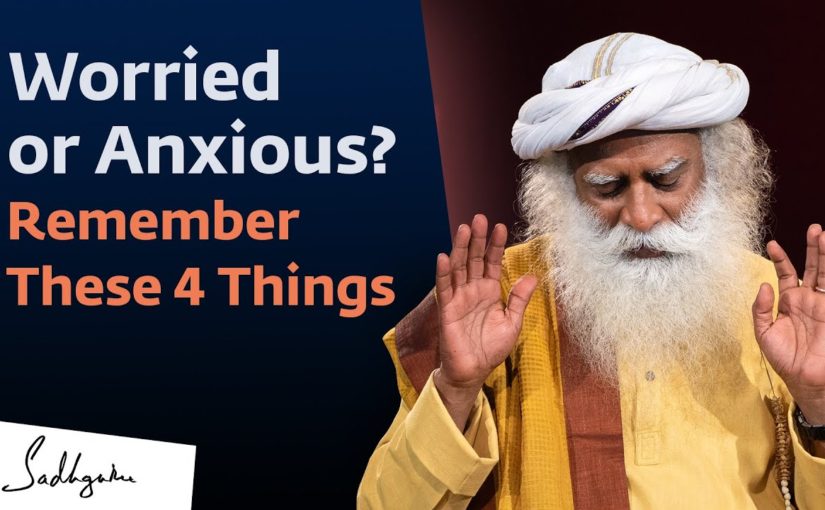
 It’s a brief amount of time that you have as life. In this, if you take yourself too seriously, you are one big joke. The secret of life is to see everything with a non-serious eye but to be involved like a sport. So be a sport for life. If you want to be a sport for life, you have to be able to see that your existence is of consequence for the times in which we live, but not of eternal consequence unless you touch the eternal dimension of who you are. It’s such a brief life, only by doing what you truly care for, will your life become worthwhile. If genuine involvement has to come in your life, for you to give yourself absolutely, you must be doing something that truly, truly matters to you. You must find that. When I say it’s important to find that, you don’t have to spend half your life looking for what is my passion. No. You just have to dig into this ability you making everything yours. When everything is yours, this whole world is yours, this cosmos is yours. So when it is a part of you, if you involve yourself absolutely, and constantly strive to create what matters to you, what you care for, then your existence itself will be worthwhile, not necessarily your actions, not what you achieve and may not achieve, but your very existence will be truly worthwhile because just to breathe and be is phenomena (Laughs). There are no greater phenomena than life. If this is not worthwhile, if this is not worthwhile, what is?
.
It’s a brief amount of time that you have as life. In this, if you take yourself too seriously, you are one big joke. The secret of life is to see everything with a non-serious eye but to be involved like a sport. So be a sport for life. If you want to be a sport for life, you have to be able to see that your existence is of consequence for the times in which we live, but not of eternal consequence unless you touch the eternal dimension of who you are. It’s such a brief life, only by doing what you truly care for, will your life become worthwhile. If genuine involvement has to come in your life, for you to give yourself absolutely, you must be doing something that truly, truly matters to you. You must find that. When I say it’s important to find that, you don’t have to spend half your life looking for what is my passion. No. You just have to dig into this ability you making everything yours. When everything is yours, this whole world is yours, this cosmos is yours. So when it is a part of you, if you involve yourself absolutely, and constantly strive to create what matters to you, what you care for, then your existence itself will be worthwhile, not necessarily your actions, not what you achieve and may not achieve, but your very existence will be truly worthwhile because just to breathe and be is phenomena (Laughs). There are no greater phenomena than life. If this is not worthwhile, if this is not worthwhile, what is?
.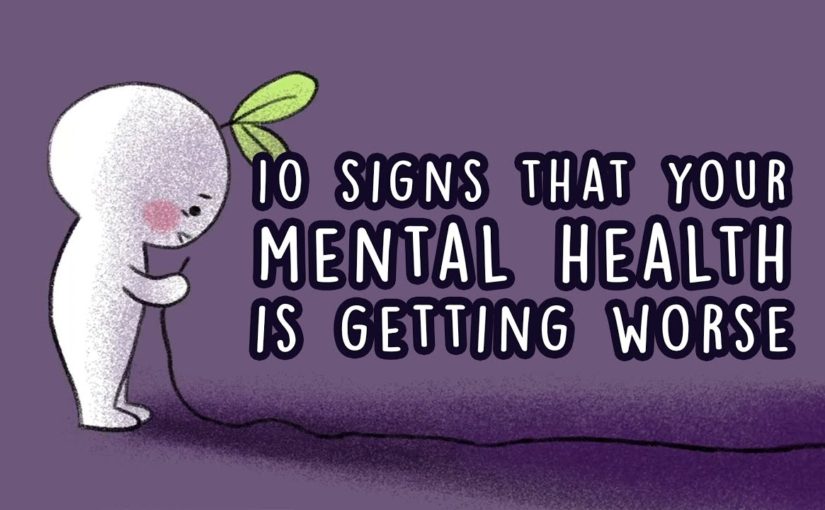
 Do you wake up in the morning with a crushing sense of anxiety that stays with you all day? Does this anxiety cast a cloud over your daily activities? Worsening anxiety can often coincide with worsening mental health. Anxiety affects us all whether or not you happen to suffer from a particular anxiety disorder. It s important to monitor your anxiety levels because a noticeable change can tell you a lot about your mental health. Anxiety is a stress response and it can cause a variety of psychological and physical symptoms. When you feel overly anxious, you might notice that your heart rate speeds up and your breathing rate increases, and you might experience a bout of nausea. Seven. You feel mentally and emotionally shattered. Do you feel like there are so many things happening around you, but you can t focus on any of them? If so, you’re not alone From time to time it s normal to feel this way, especially when you are going through higher amounts of stress. However, if you are feeling scattered and like things are spinning out of control, this could be a sign that your mental health is under strain According to Psychologist, Rick Hanson from Psychology. Today, you probably feel scattered, because you are struggling to find your center. This means that, for your brain to feel more organized, you need to feel at peace within yourself. Practicing mindfulness such as yoga and meditation are great places to start on the road to inner peace. Eight, You can t seem to pay attention. Do you have a harder time focusing and staying on task When you’re reading? Is it hard to comprehend? Do you have to reread the same passage over and over, Though it could relate to potential psychological disorders such as ADHD, depression, or anxiety? It is also likely that a lack of focus can be due to stress or poor self-care. It can be frustrating to start losing focus so frequently and those feelings are valid and normal Remember to take care of yourself and, as you recover know, that help is available NINE. You might be struggling with your impulse control. Are you acting more on impulse? Are you possibly indulging in things you should t, Whether it s retail therapy or binging, all of your shows, or playing video games for hours? When you act more on impulse like this, it can signify worsening mental health. You might pick up some unhealthy habits as a way to cope with life. Stress fulfills you or distracts you from a major issue going on in your life. Journaling, mindfulness, and therapy are great ways to start uncovering some of these issues. Ten, You are struggling to feel, grounded Similar to feeling centered when you are grounded. You are feeling confident and balanced within yourself. According to Irene Langeveld, an energy worker and meditation coach grounding starts with the root chakra at the base of the spine known to help. You feel secure Activities that connect your body with the world around you, such as hiking, meditating, or walking outside, are all great ways to help. You find your sense of grounding. Can you relate to any of the points made in this video? Do you think your mental health could be slipping If so know that there is help you can reach out to You. Can talk to a trusted friend, family member, or mental health therapist for support? Please like and share this video if it helped you and you think it can help someone else too. The studies and references used are listed in the description below Don t forget to hit the subscribe button for more Psych2Go videos. Thank you for watching. We’ll see you next time, Video by Psych2go.
Do you wake up in the morning with a crushing sense of anxiety that stays with you all day? Does this anxiety cast a cloud over your daily activities? Worsening anxiety can often coincide with worsening mental health. Anxiety affects us all whether or not you happen to suffer from a particular anxiety disorder. It s important to monitor your anxiety levels because a noticeable change can tell you a lot about your mental health. Anxiety is a stress response and it can cause a variety of psychological and physical symptoms. When you feel overly anxious, you might notice that your heart rate speeds up and your breathing rate increases, and you might experience a bout of nausea. Seven. You feel mentally and emotionally shattered. Do you feel like there are so many things happening around you, but you can t focus on any of them? If so, you’re not alone From time to time it s normal to feel this way, especially when you are going through higher amounts of stress. However, if you are feeling scattered and like things are spinning out of control, this could be a sign that your mental health is under strain According to Psychologist, Rick Hanson from Psychology. Today, you probably feel scattered, because you are struggling to find your center. This means that, for your brain to feel more organized, you need to feel at peace within yourself. Practicing mindfulness such as yoga and meditation are great places to start on the road to inner peace. Eight, You can t seem to pay attention. Do you have a harder time focusing and staying on task When you’re reading? Is it hard to comprehend? Do you have to reread the same passage over and over, Though it could relate to potential psychological disorders such as ADHD, depression, or anxiety? It is also likely that a lack of focus can be due to stress or poor self-care. It can be frustrating to start losing focus so frequently and those feelings are valid and normal Remember to take care of yourself and, as you recover know, that help is available NINE. You might be struggling with your impulse control. Are you acting more on impulse? Are you possibly indulging in things you should t, Whether it s retail therapy or binging, all of your shows, or playing video games for hours? When you act more on impulse like this, it can signify worsening mental health. You might pick up some unhealthy habits as a way to cope with life. Stress fulfills you or distracts you from a major issue going on in your life. Journaling, mindfulness, and therapy are great ways to start uncovering some of these issues. Ten, You are struggling to feel, grounded Similar to feeling centered when you are grounded. You are feeling confident and balanced within yourself. According to Irene Langeveld, an energy worker and meditation coach grounding starts with the root chakra at the base of the spine known to help. You feel secure Activities that connect your body with the world around you, such as hiking, meditating, or walking outside, are all great ways to help. You find your sense of grounding. Can you relate to any of the points made in this video? Do you think your mental health could be slipping If so know that there is help you can reach out to You. Can talk to a trusted friend, family member, or mental health therapist for support? Please like and share this video if it helped you and you think it can help someone else too. The studies and references used are listed in the description below Don t forget to hit the subscribe button for more Psych2Go videos. Thank you for watching. We’ll see you next time, Video by Psych2go.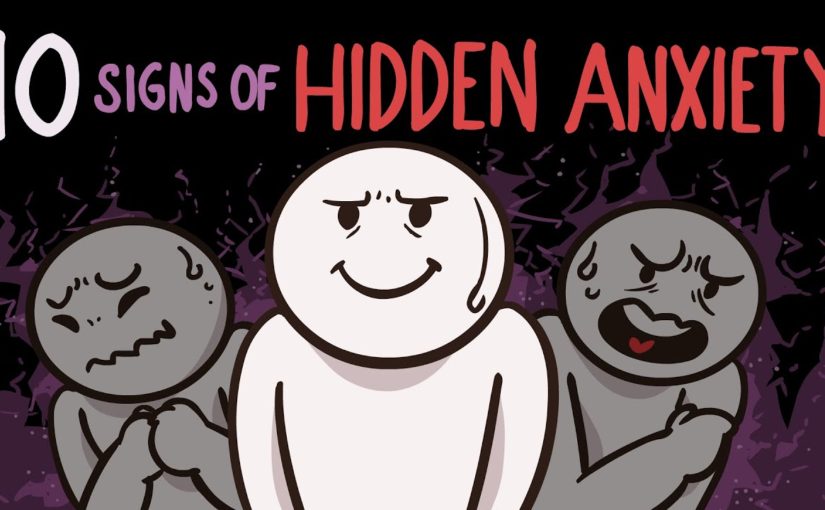
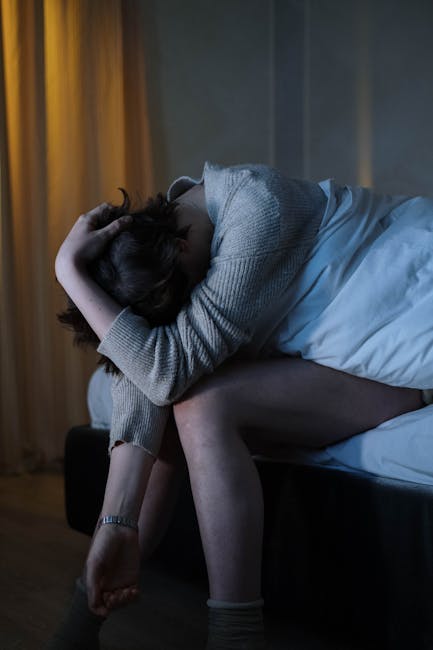 Life isn’t always kind to us and self-love and a balanced lifestyle don’t come easily. Living with anxiety, especially if it’s hidden or suppressed, can make it hard for us to feel good about ourselves and let ourselves feel happy. It makes us believe that we don’t deserve it and traps us in a vicious cycle of negative self-talk and constant pressure to be perfect. 9. You have a lot of negative thoughts. Are you a pessimist whose quick to find the downsides in every situation? Do you find yourself getting upset or stressing out over even the most minor inconveniences? Is every day a constant battle with yourself against the spiral of panicked and rational thoughts you have? In 1997, famed psychologist and cognitive therapist, Aaron Beck, termed this kind of thought pattern as catastrophic thinking, Which he often observed in his patients who suffered from anxiety. And 10. You experience physical symptoms. Sometimes anxiety can be entirely physical because while your conscious mind may not always be aware of your anxiety it will make itself known to your body. Things like erratic heartbeats, chest palpitations, muscle tension, a clenched jaw, shaky hands up a little sweating are all indicative of anxiety. Your body may be trying to let your mind know that you’re feeling anxious and stop it before it gets any worse. Do you relate to any of the problems listed here? Or do you do your best to seem ok? And hide your symptoms because you feel embarrassed about your anxiety? The truth is: you’re not alone and having mental health issues is nothing to be ashamed of. What do you plan to do next? Let us know in the comments below! Don’t forget to like this video and subscribe to Psych2Go for more psychology content. Thanks for watching and we’ll see you soon.
Life isn’t always kind to us and self-love and a balanced lifestyle don’t come easily. Living with anxiety, especially if it’s hidden or suppressed, can make it hard for us to feel good about ourselves and let ourselves feel happy. It makes us believe that we don’t deserve it and traps us in a vicious cycle of negative self-talk and constant pressure to be perfect. 9. You have a lot of negative thoughts. Are you a pessimist whose quick to find the downsides in every situation? Do you find yourself getting upset or stressing out over even the most minor inconveniences? Is every day a constant battle with yourself against the spiral of panicked and rational thoughts you have? In 1997, famed psychologist and cognitive therapist, Aaron Beck, termed this kind of thought pattern as catastrophic thinking, Which he often observed in his patients who suffered from anxiety. And 10. You experience physical symptoms. Sometimes anxiety can be entirely physical because while your conscious mind may not always be aware of your anxiety it will make itself known to your body. Things like erratic heartbeats, chest palpitations, muscle tension, a clenched jaw, shaky hands up a little sweating are all indicative of anxiety. Your body may be trying to let your mind know that you’re feeling anxious and stop it before it gets any worse. Do you relate to any of the problems listed here? Or do you do your best to seem ok? And hide your symptoms because you feel embarrassed about your anxiety? The truth is: you’re not alone and having mental health issues is nothing to be ashamed of. What do you plan to do next? Let us know in the comments below! Don’t forget to like this video and subscribe to Psych2Go for more psychology content. Thanks for watching and we’ll see you soon.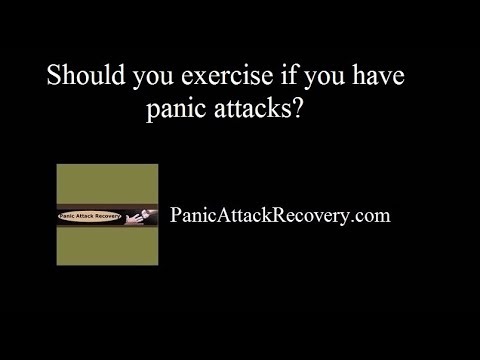
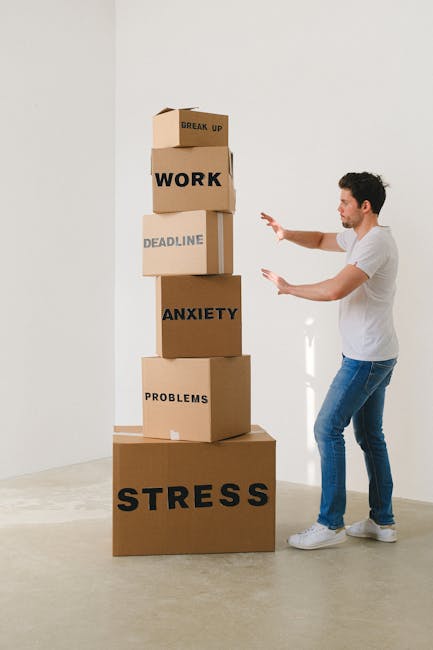 We think that realizing the connection between
exercise and panic attacks can be very helpful not only because of the reasons above. But the reason is that exercise allows you
to be in a controlled situation where are increasing your pulse. This demonstrates that you can deal with an
increased pulse – an increased pulse, as you are no doubt aware, is often one of the
concerns the sufferer has during a panic attack. I would like to mention a study completed
at Charite University Medicine in Berlin. This study found that 50% of subjects who
completed 30 minutes of daily aerobic exercise were able to avoid having a panic attack in
the experiment. Researchers wrote: “Our results for the
first time suggest that exercise has an acute anti panic activity.” Pretty good evidence for a correlation between
exercise and panic attacks. So what’s cool: The energy that one
might have invested in their anxiety, in the past, can be redirected to their well-being
through exercise. This realization in itself can make one feel
better. Be sure to
subscribe to our channel and like our videos if they are helpful to you. Please feel free to share our videos with
others who may benefit from them. Your communication is important to us. If you have any questions or comments, please
feel free to leave them in the in comments below. To get started with more help you can join
our free newsletter at:
We think that realizing the connection between
exercise and panic attacks can be very helpful not only because of the reasons above. But the reason is that exercise allows you
to be in a controlled situation where are increasing your pulse. This demonstrates that you can deal with an
increased pulse – an increased pulse, as you are no doubt aware, is often one of the
concerns the sufferer has during a panic attack. I would like to mention a study completed
at Charite University Medicine in Berlin. This study found that 50% of subjects who
completed 30 minutes of daily aerobic exercise were able to avoid having a panic attack in
the experiment. Researchers wrote: “Our results for the
first time suggest that exercise has an acute anti panic activity.” Pretty good evidence for a correlation between
exercise and panic attacks. So what’s cool: The energy that one
might have invested in their anxiety, in the past, can be redirected to their well-being
through exercise. This realization in itself can make one feel
better. Be sure to
subscribe to our channel and like our videos if they are helpful to you. Please feel free to share our videos with
others who may benefit from them. Your communication is important to us. If you have any questions or comments, please
feel free to leave them in the in comments below. To get started with more help you can join
our free newsletter at: 
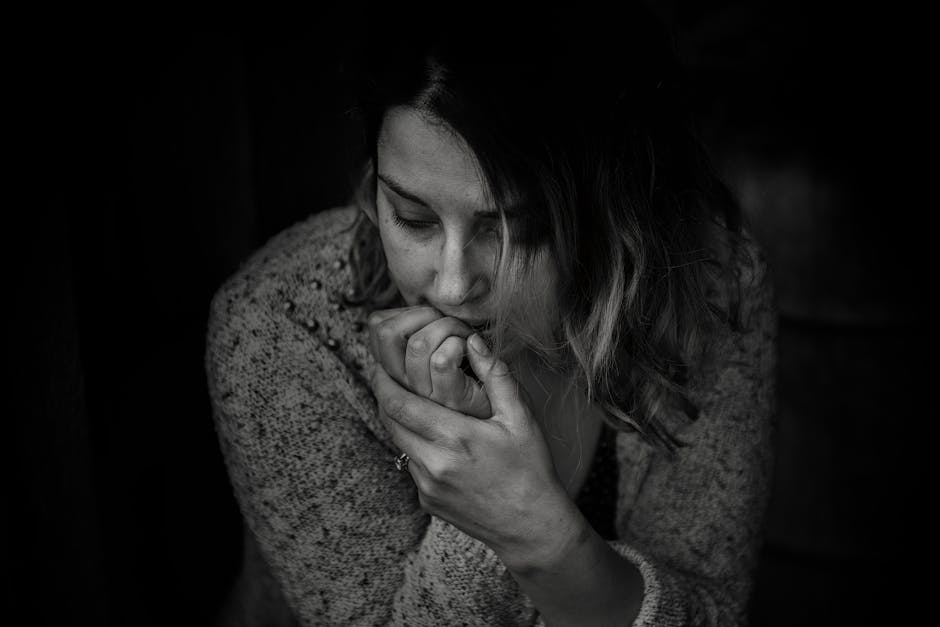 By practicing this suggestion over time you
will get better at it. Often anxiety sufferers can be helped by learning
how to be gracefully assertive in their relations with others. By learning polite assertiveness, you can
decrease your anxiety across several situations. We hope that you have enjoyed this video. To get more help with your anxiety, and obtain instant access to the 5 steps to
recovery from panic attacks and agoraphobia, just visit our website and provide your email
address. All of our information is free. Please visit our website at
By practicing this suggestion over time you
will get better at it. Often anxiety sufferers can be helped by learning
how to be gracefully assertive in their relations with others. By learning polite assertiveness, you can
decrease your anxiety across several situations. We hope that you have enjoyed this video. To get more help with your anxiety, and obtain instant access to the 5 steps to
recovery from panic attacks and agoraphobia, just visit our website and provide your email
address. All of our information is free. Please visit our website at 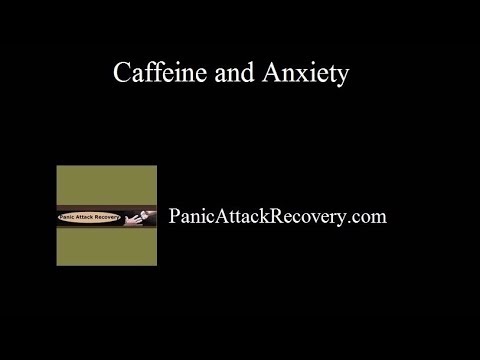
 Withdrawal symptoms have been reported, such as headache, irritability, sleeplessness, confusion, nausea, restlessness, tremor palpitations, and raised blood pressure. You might be asking how to kick the caffeine habit or reduce the amount of coffee you consume. We would suggest you may want to think about two things. 1 Become aware of all your sources of caffeine by taking an inventory of all of your caffeine levels and 2. Consider substituting green tea in place of all or some of your daily coffee. Why green tea? Although green tea, has some caffeine? It s not nearly as much as coffee As mentioned, while a brewed 8 oz cup of coffee can have about 95 200 mg of caffeine. Green tea has about 14 40 mg of caffeine. Only In addition to subscribing to our YouTube channel, you can visit our website and Sign up for our free email newsletter, Obtain a range of articles about panic, attacks, anxiety, and agoraphobia, and Follow us on Twitter and Facebook. By taking advantage of these options, you can be assured that you will not be missing out on any of our resources. Please visit our website at
Withdrawal symptoms have been reported, such as headache, irritability, sleeplessness, confusion, nausea, restlessness, tremor palpitations, and raised blood pressure. You might be asking how to kick the caffeine habit or reduce the amount of coffee you consume. We would suggest you may want to think about two things. 1 Become aware of all your sources of caffeine by taking an inventory of all of your caffeine levels and 2. Consider substituting green tea in place of all or some of your daily coffee. Why green tea? Although green tea, has some caffeine? It s not nearly as much as coffee As mentioned, while a brewed 8 oz cup of coffee can have about 95 200 mg of caffeine. Green tea has about 14 40 mg of caffeine. Only In addition to subscribing to our YouTube channel, you can visit our website and Sign up for our free email newsletter, Obtain a range of articles about panic, attacks, anxiety, and agoraphobia, and Follow us on Twitter and Facebook. By taking advantage of these options, you can be assured that you will not be missing out on any of our resources. Please visit our website at